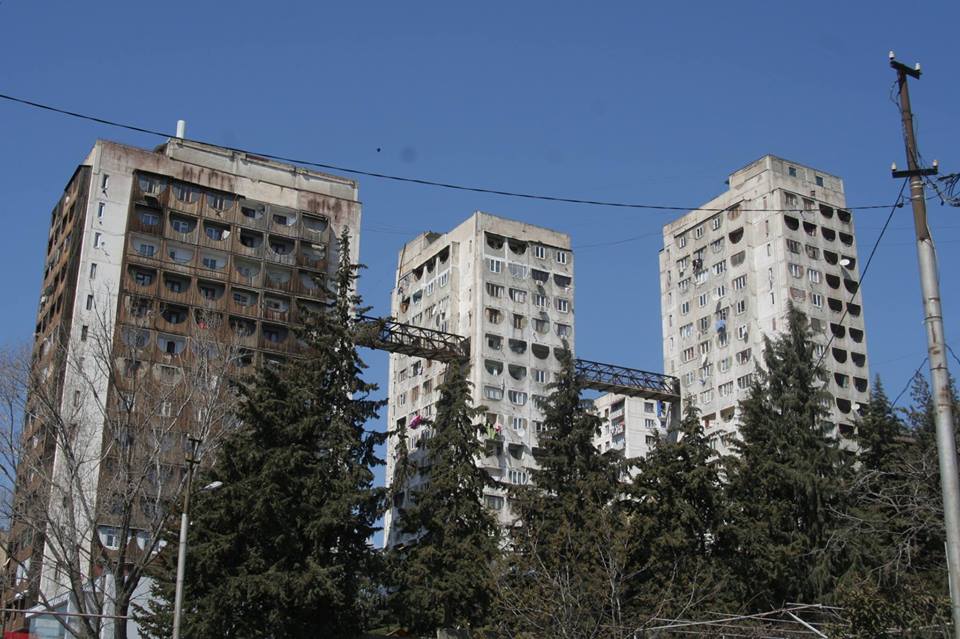Přednáška gruzínského architekta a aktivisty LEVANA ASABASHVILIHO o modernistické architektuře a její transformaci v současné neoliberalistické společnosti.

V Gruzii, stejně jako ve většině postsovětských republik, je vztah společnosti k architektonickému dědictví velmi sporným a ideologicky napjatým tématem. V souvislosti s tím se objevuje řada různých přístupů a hodnotových systémů, na které mají vliv mocenské vztahy, třídní problematika a politické ideologie. Modernistické stavby jsou v rámci tohoto dědictví jedním z nejvíce opomíjených a nenáviděných artefaktů. V posledních dvou desetiletích byly mnohé z nich zbourány nebo radikálně změněny. Tyto případy mohou být použity jako prostorové manifesty současných dominantních politických, sociálních a ekonomických sil.
Souběžně s tímto procesem značně vzrůstá citlivost občanské společnosti na urbanistické a ekologické problémy. Uskutečnila se řada kampaní na ochranu historického dědictví, veřejného prostoru či zeleně. Byť některé z nich zcela nebo alespoň zčásti dosáhly svého cíle, jejich preference, způsob artikulace problémů a strategie jejich aktivit zůstaly povrchními a elitářskými, vycházejícími z liberálních “občansko-společenských” politických hledisek. Změna autoritářské pravicové vlády v roce 2012 a zavedení “levo-pravé” diskuse zafungovala jako katalyzátor pro polarizaci gruzínské společnosti, včetně těchto občanských skupin a jejich členů.
Levan Asabashvili vystudoval architekturu na Akademii umění v Tbilisi a Technologické univerzitě v Delftu. Od roku je aktivním členem organizace URBAN REACTOR.
http://
Přednáška je součástí cyklu CZECH PROJECT a proběhne v anglickém jazyce.
– – – – – –
In Georgia, as in most post Soviet republics, architectural heritage is highly contested and ideologically strained sphere. There exist several different approaches and value systems concerning this question, which are intertwined with power relations, class belongings and political ideologies. Modernist structures, among this heritage, are one of the mostly neglected and hated artifacts in our cities. In the recent two decades many of them have been demolished or radically transformed. These cases can be used as spatial manifestations of recent dominant political, social and economic forces in play.
Parallel to this process the sensibility of the civil society groups on urban and ecological problems has risen considerably. Number of campaigns have been held for protecting historical heritage, public spaces or greenery. While some of these campaigns fully or partly reached their goals, their preferences, articulations of problems and strategies for action remained superficial and elitist, stemming from liberal “civil society” political standpoints. The change of the authoritarian right wing government in 2012 and introduction of some sort of left-right debate has served as a catalyzer for the polarization of Georgian society, including these civil groups and their members.
Levan Asabashvili studied architecture in Tbilisi art academy and Delft University of technology. From 2009 is a member of Urban Reactor.
http://
Lecture will be held in English.


